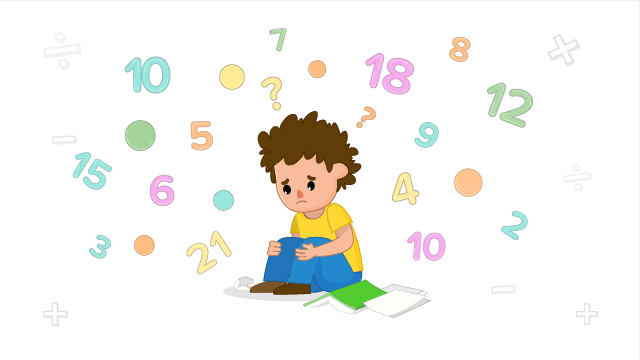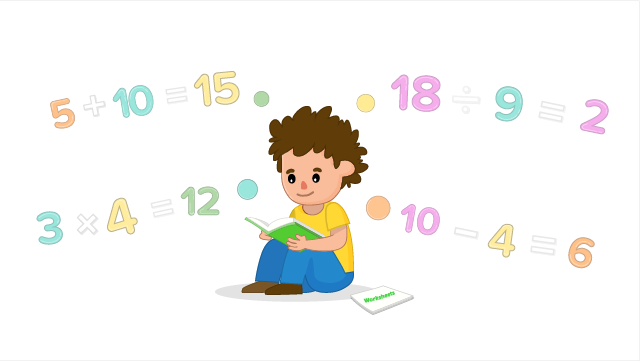A Guide from Fright to Delight!
Are you one of the parents whose child runs away from numbers, skips math work, gets butterflies in the stomach when they encounter math problems, and many more such instances where numbers induce a sense of fright—or, math anxiety—in the mind of your kids?
Congratulations, you are on the appropriate platform. You can read about some of the factors that can induce maths anxiety here, along with suggestions for coping mechanisms. This is the guide from fright to delight that can help kids get over math anxiety. This blog will provide you with the best advice on how to help your child get over their fear of numbers and enjoy the fascinating world of numbers.
Factors That Trigger Math Anxiety or Fright in Kids

Bitter Memories: If an adult or a child suffers any kind of humiliation, it is a common belief that it stays in the mind forever. Many children feel embarrassed in front of their friends when they receive poor mathematical grades, and because of these painful experiences, the kids end up developing a terrible maths phobia.
Academic environments that are competitive: We live in a competitive world that puts unwelcome societal pressure on our kids to perform proficiently in maths. Math anxiety or fear is made worse in the mind of a child by such an unpleasant environment of excessive pressure.
Lack of Confidence: A weak brain is caused by a weak heart. Children who frequently struggle with math calculations and obtain poor grades decline in their degree of self-confidence. Children with low math esteem may believe they are mathematically weak by nature, which fuels their anxiety.
A Guide From Fright To Delight

- Teach your child to always ask for help when they need it when trying to solve a maths problem. Establish in kids the notion that their parents and teachers are always available to them for supportive advice.
- Stay Calm: The new proverb of the competitive age is to “remain calm”. This probably helps to save your child from a demon-like maths phobia. When faced with maths difficulties, children should learn to remain cool. It’s important to maintain calm because anxiety may interfere with thinking.
- Consistent Practise: Motivate your child to engage in consistent maths practise. child will feel more confident and at ease as they master maths skills.
- Honour Small Victories: Encourage your child to acknowledge and honour victories, no matter how small they may seem. Recognising minor achievements is necessary for developing maths confidence.
- Fun with math at Fun2Do Labs: Bid farewell to dull math lessons! Switch to the transmedia world of education and help your child learn math in fascinating ways. Embrace the fun of learning through reading and watching in Fun2Do Labs’ transmedia educational environment.
Remember one can acquire or improve mathematical skills with time and effort. Holding your child’s hand and encouraging them to take on the task can help them overcome their maths phobia. This will definitely help them to realize their full potential.

